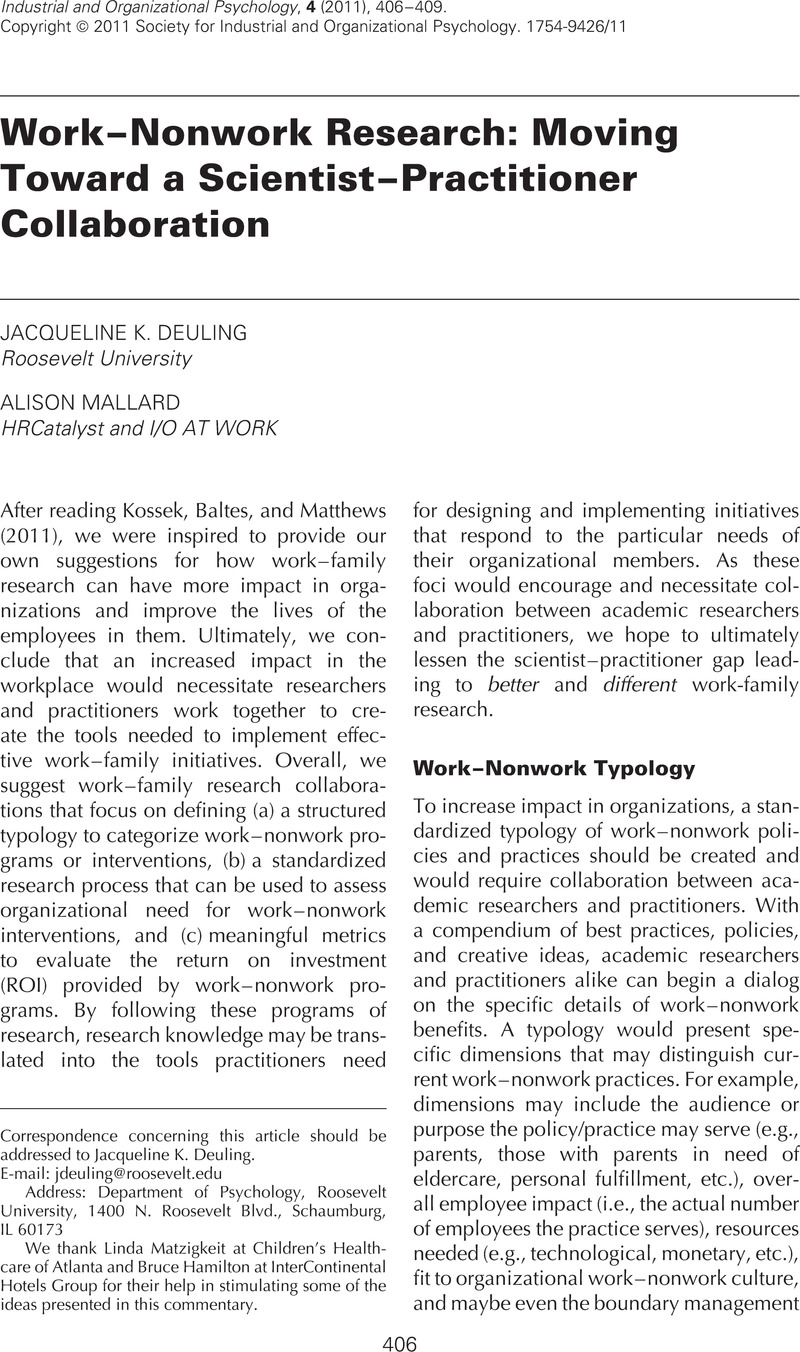Article contents
Work–Nonwork Research: Moving Toward a Scientist–Practitioner Collaboration
Published online by Cambridge University Press: 07 January 2015
Abstract
An abstract is not available for this content so a preview has been provided. Please use the Get access link above for information on how to access this content.

- Type
- Commentaries
- Information
- Copyright
- Copyright © Society for Industrial and Organizational Psychology 2011
Footnotes
We thank Linda Matzigkeit at Children's Healthcare of Atlanta and Bruce Hamilton at InterContinental Hotels Group for their help in stimulating some of the ideas presented in this commentary.
References
Goldstein, I., & Ford, J. K. (2002). Training in organizations: Needs assessment, development, and evaluation (4th ed.). Belmont, CA: Wadsworth.
Google Scholar
Kossek, E. E., Baltes, B. B., & Matthews, R. A. (2011). How work–family research can finally have an impact in organizations.
Industrial and Organizational Psychology: Perspectives on Science and Practice, 4, 352–369.
Google Scholar
Roth, P. L., Bobko, P., & Mabon, H. (2002). Utility analysis: A review and analysis at the turn of the century. In Anderson, N., Ones, D. S., & Viswesvaran, C. (Eds.), Handbook of industrial, work and organizational psychology, Volume 1: Personnel psychology (pp. 383–384). Thousand Oaks, CA: Sage.
Google Scholar
- 1
- Cited by




